(488 products available)






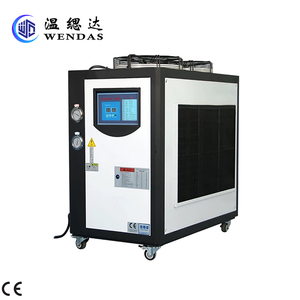




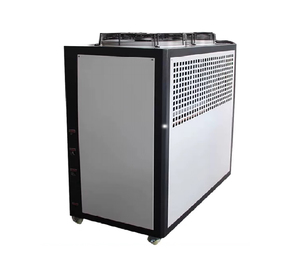

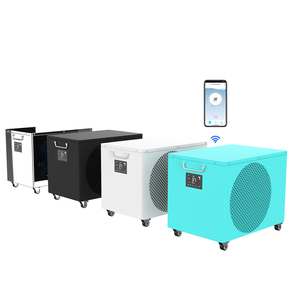



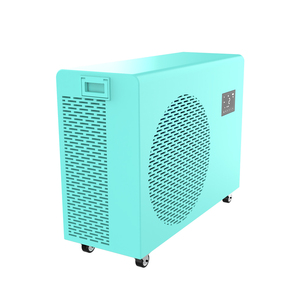







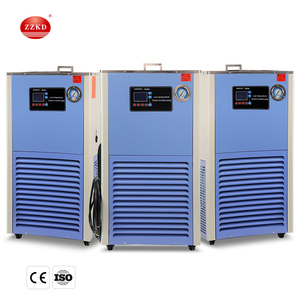





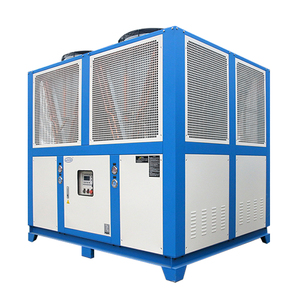


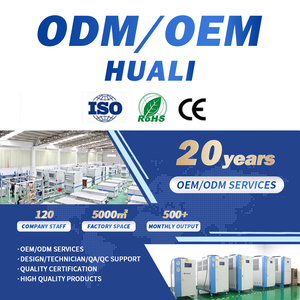
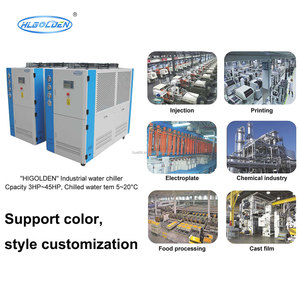

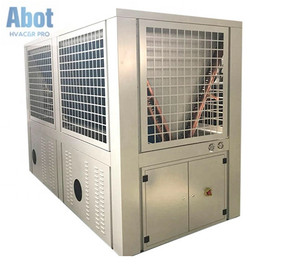







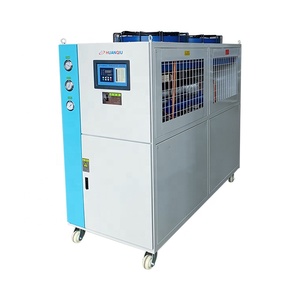


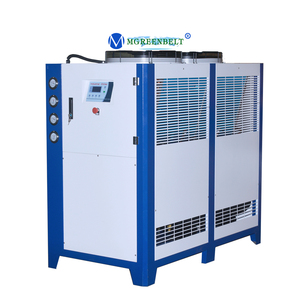





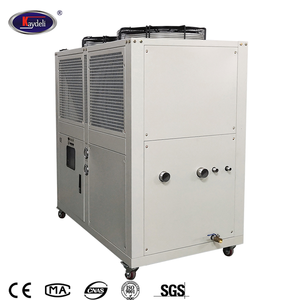










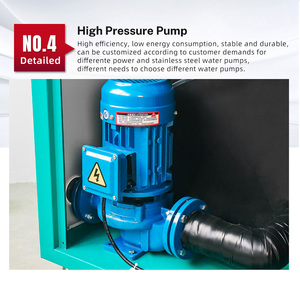



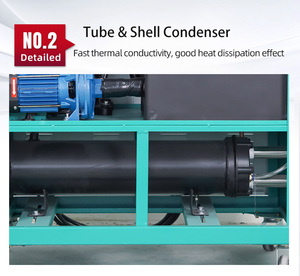

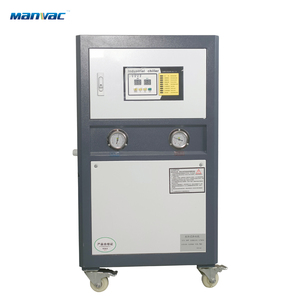

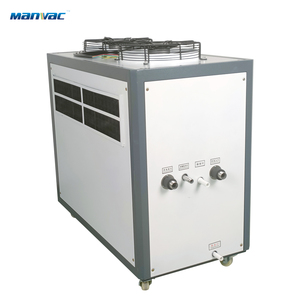
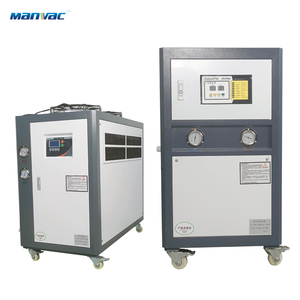


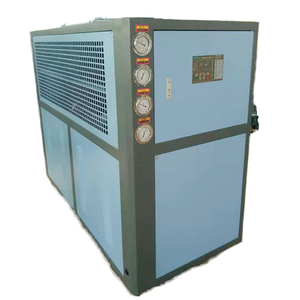



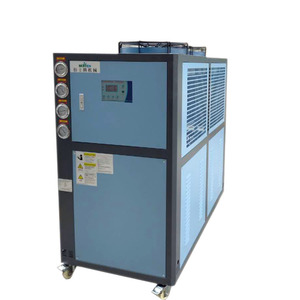






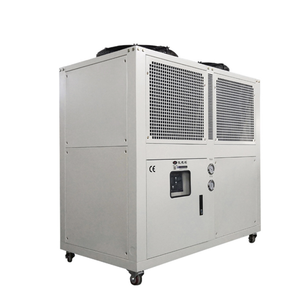

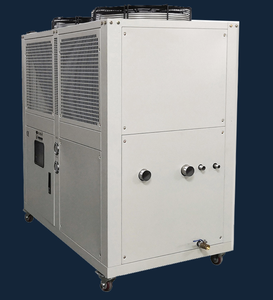
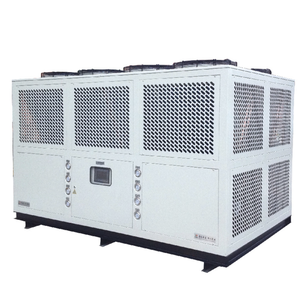
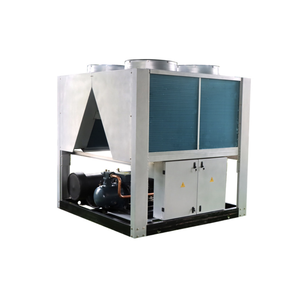
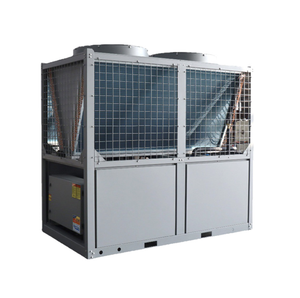






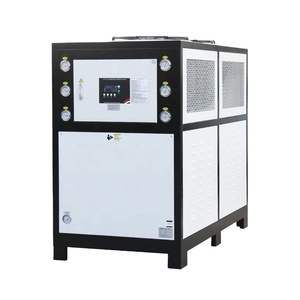




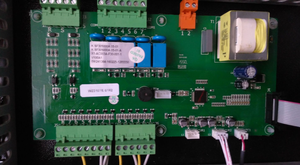
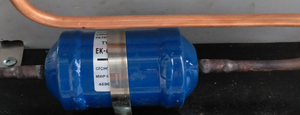


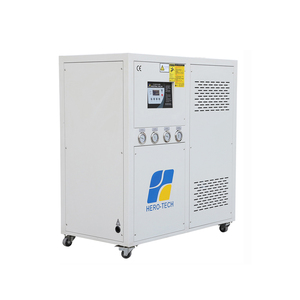
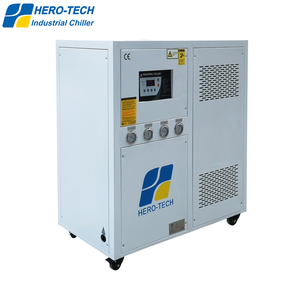


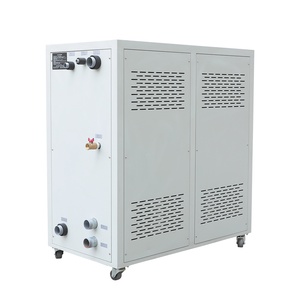
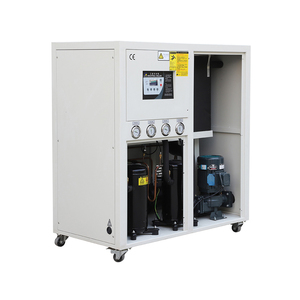
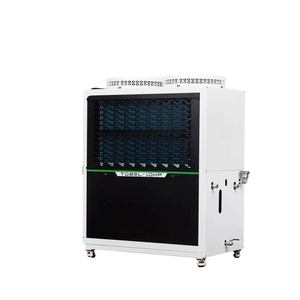
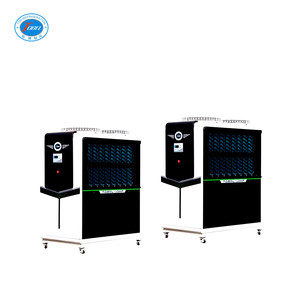


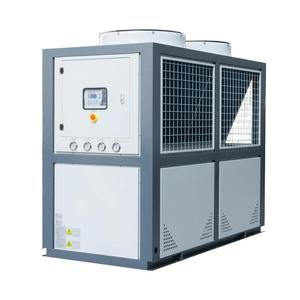

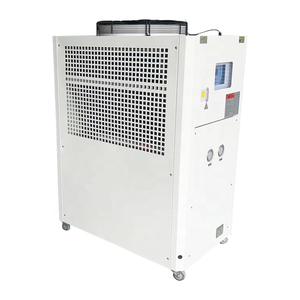
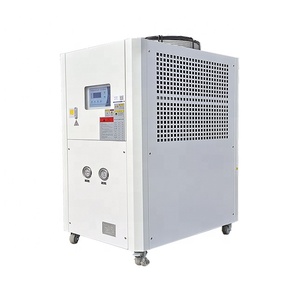


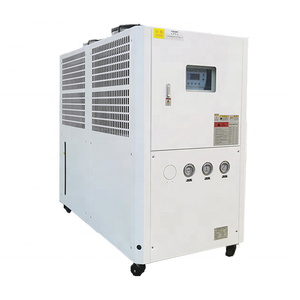
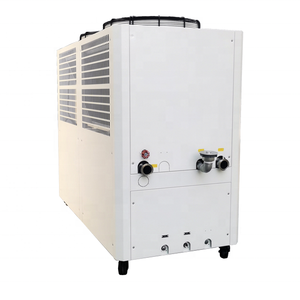






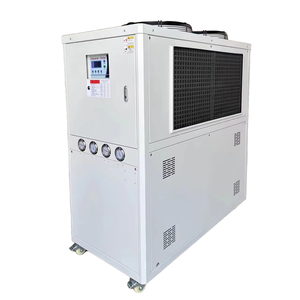

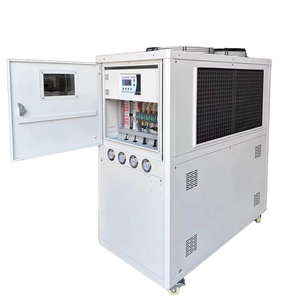
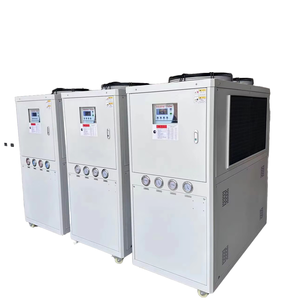

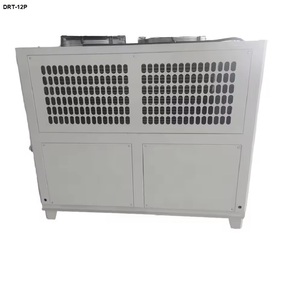




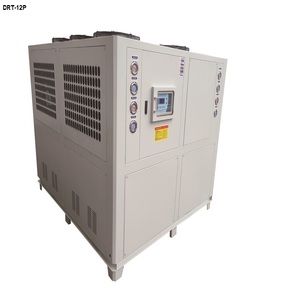

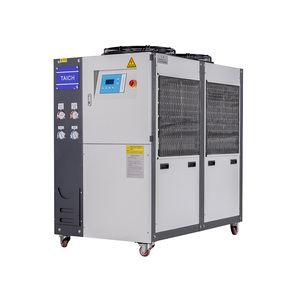
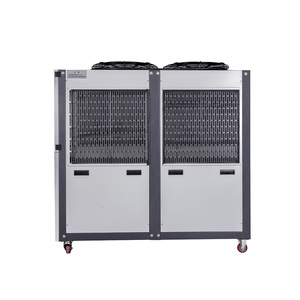


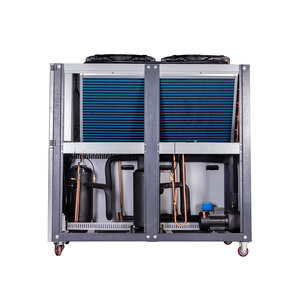
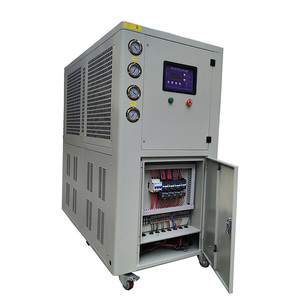


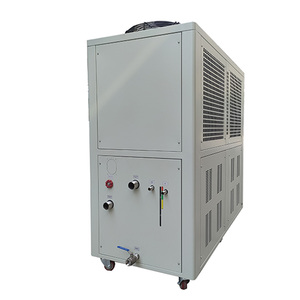

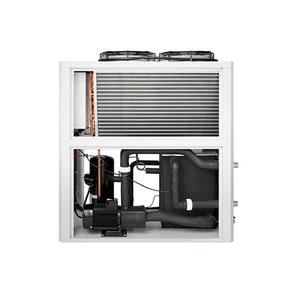
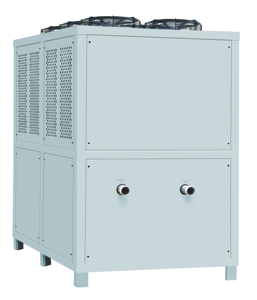

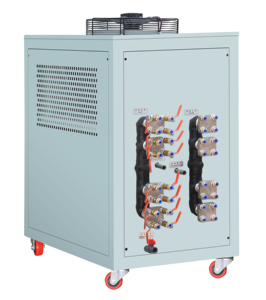



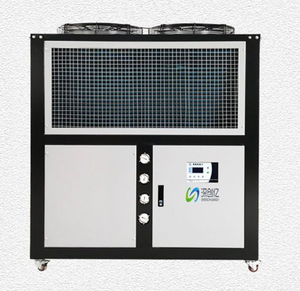

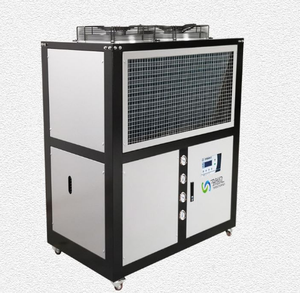
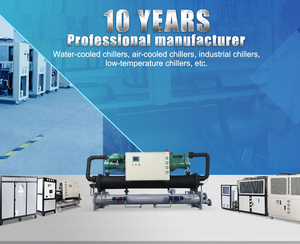
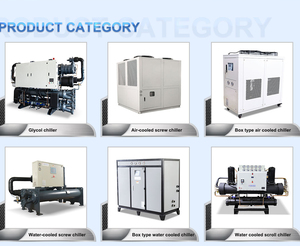

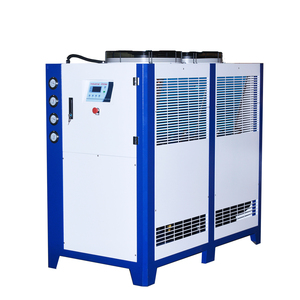


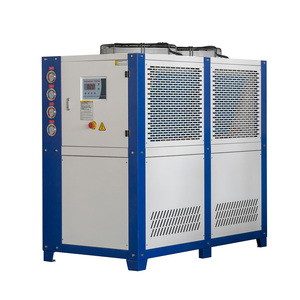



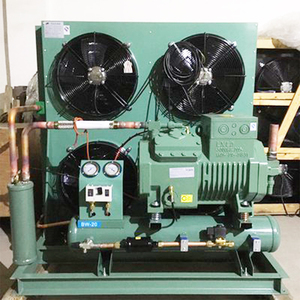

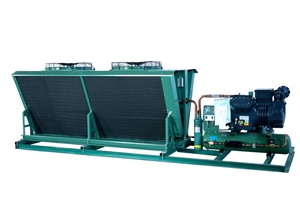






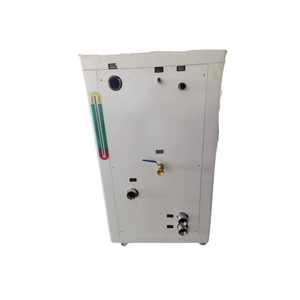











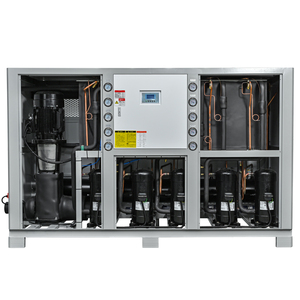



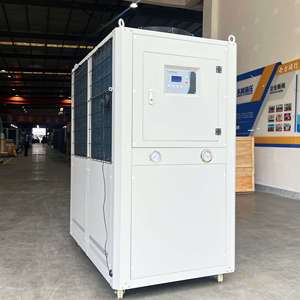
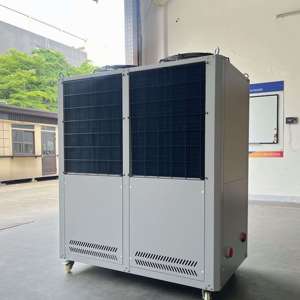
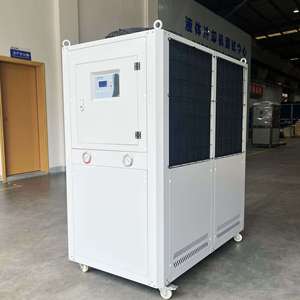
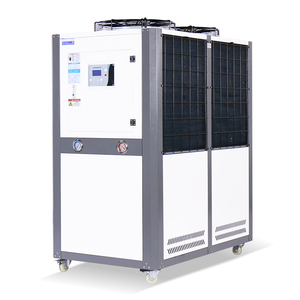




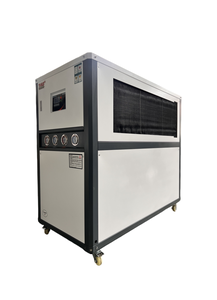
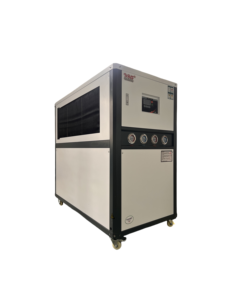
A 12hp chiller is a type of water chiller that has a cooling capacity of twelve horsepower. 12hp chillers can be broadly classified into two primary categories based on their operating principles: air-cooled 12hp chillers and water-cooled 12hp chiller.
Proper maintenance is crucial for ensuring that 12hp chillers function well for a long time. Regular inspection of the unit's components is necessary to prevent any issues from escalating further. Some of the components that should be inspected are the evaporator, the condenser, and the refrigerant system. During inspection, it is important to look out for any leaks or damage. The evaporator is supposed to be clean to ensure optimal heat transfer. The same applies to the condenser. The water-cooled condenser needs to be checked for scale buildup, which needs to be removed to prevent reduced efficiency. If the air-cooled condenser is dirty, it should be cleaned to maintain a constant flow of air. The refrigerant system should be checked for leaks. If the refrigerant leaks, the 12hp chiller won't cool the air properly. The refrigerant level should also be checked. Low refrigerant levels can strain the compressor. Additionally, the filters should be changed or cleaned regularly to prevent blockage and maintain proper airflow.
Lubrication is also an important maintenance task. The moving parts of the 12hp chiller need to be lubricated to reduce friction and prevent wearing. The electrical connections need to be tight and inspected to ensure safety. Unsecured electrical connections can cause malfunction or an electrical accident. Depending on the type of 12hp chiller, the control system should be calibrated to ensure accurate temperature control. If the 12hp chiller uses a water-cooled system, the water treatment is essential. Water quality affects the lifespan and performance of a water-cooled chiller. The water needs to be treated to prevent corrosion and algae buildup. Water treatment also prevents scaling. The chemicals used for water treatment should be used in the right proportions to avoid damage to the system. Regular cleaning and maintenance can prevent the need for frequent 12hp chiller repair.
Here are some common scenarios in which a 12hp chiller is used.
It can be applied to various industries' production lines to cool down equipment, control the temperature of the manufacturing environment and manage the heat generated during the manufacturing process. Some industries that can benefit from this application include the electronics, automotive, chemical, and food and beverage industries, to mention a few.
A 12hp chiller serves as an essential component in large-scale HVAC systems. This chiller can be used to cool the water or air that is then transported throughout a building to help adjust the indoor climate according to users' needs. This application is especially important in commercial and office buildings, hospitals and hotels, among other places where a comfortable indoor environment is required.
It can be used to cool MRI machines, pet or ct scanners and linear accelerators, among other medical devices. This is necessary for a 12hp chiller to maintain precise and stable operating conditions for the equipment, ensuring their normal operation and accuracy.
Laser welding and cutting machines use 12hp chillers to cool the laser sources and control units. The chiller ensures the laser machines operate efficiently and precisely by removing excess heat from the equipment.
A 12hp water chiller can be used to keep the temperatures of various types of food products and beverages at an optimal level. It can also be used for meat processing, brewery, and milk processing to mention a few other applications.
A 12hp industrial chiller can be used to cool the molding, extrusion, and other processing equipment in the manufacturing process of plastic and rubber. The chiller will help maintain stable production and improve the quality of the final products.
When selecting a 12hp chiller machine, it is essential to assess the cooling capacity based on the heat load of the business's needs. The cooling capacity of a chiller is usually based on tonnage. One ton equals 12,000 British thermal units per hour (BTU/hr). A 12hp chiller, for example, has a cooling capacity of approximately 42,000 BTU/hr. Depending on the heat loads, one machine might be sufficient or several machines.
Consider the heat transfer rate of the chiller, which determines how quickly the machine can cool a given load. Higher heat transfer rates result in faster cooling times but also affect energy consumption and efficiency. Efficient chiller operation is paramount. Businesses should get a machine that can perform optimally at all times without incurring high costs. The energy efficiency of a chiller can be determined by its coefficient of performance (COP). This is the ratio of cooling output to energy input. A chiller with a high COP rating is considered more efficient because it produces more cooling per unit of energy used.
Air-cooled chillers are usually noisier than water-cooled ones. If noise pollution is a concern, it might be better to opt for a water-cooled machine. Additionally, remember that an air-cooled chiller may require more maintenance to keep the condenser clean and operating efficiently. Water-cooled chillers are great if the business already has a water-cooling system in place or if it has limited space for the machine. However, they may be more expensive to install than air-cooled ones.
Another important factor to consider is the compatibility with existing systems. The new chiller being purchased should work seamlessly with any existing HVAC systems and equipment. If it doesn’t, the buyer may have to incur additional costs to make the systems compatible.
Q1: What is the difference between an air chiller and a water chiller?
A1: The major difference between air and water chillers is the method used to disperse heat. Air chillers use fans to cool the refrigerant and release heat to the air surrounding the chiller. On the other hand, water chillers use water to absorb heat. They are more efficient and can cool to lower temperatures.
Q2: Are chillers really necessary in an industrial setting?
A2: Yes, 12hp chillers are crucial in industrial settings. They help maintain optimal operating temperatures for equipment. Without a chiller, machinery and systems would overheat and fail, resulting in downtime and costly repairs.
Q3: How big is a 12hp chiller?
A3: A typical 12hp chiller measures about 20 inches wide, 50 inches long, and 40 inches high. But the size can vary based on the model and manufacturer.
Q4: What is the lifespan of a chiller?
A4: A well-maintained chiller can last up to 15-20 years. However, the lifespan will depend on the usage, maintenance, and operating conditions.